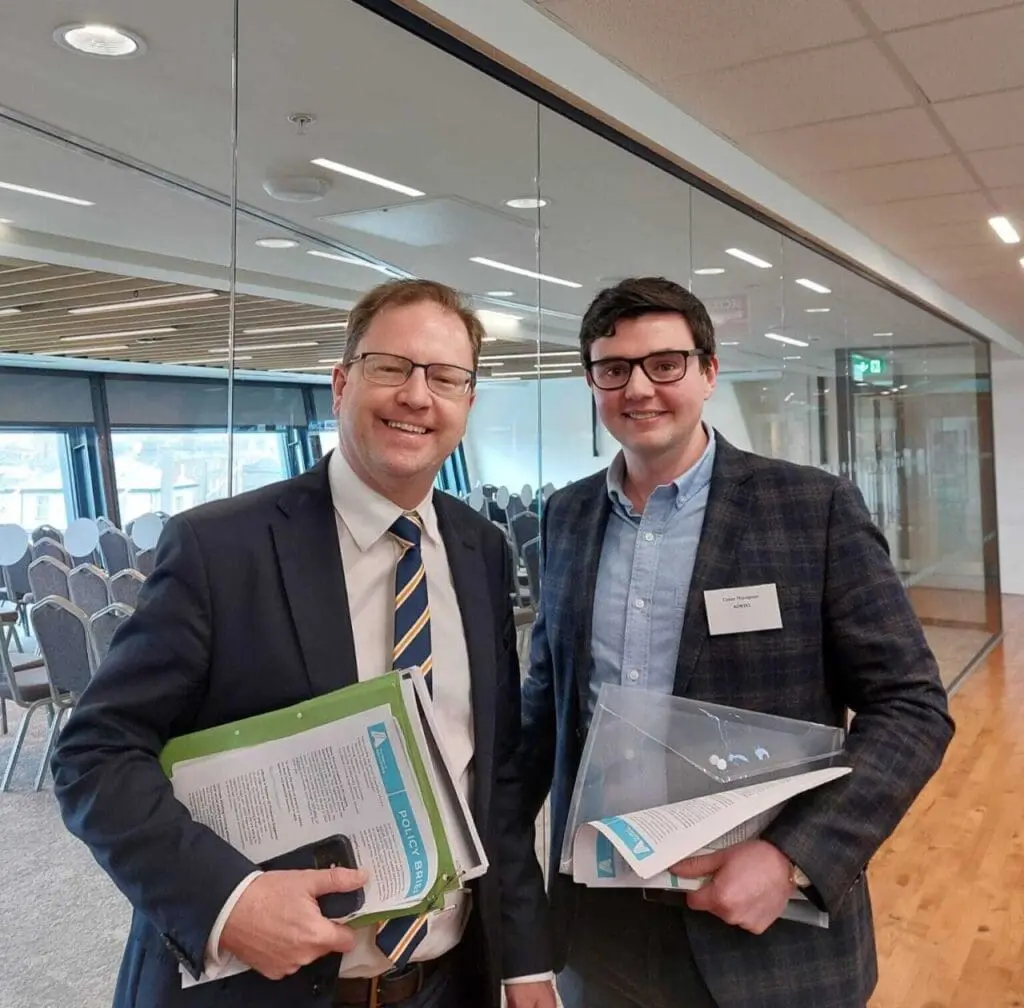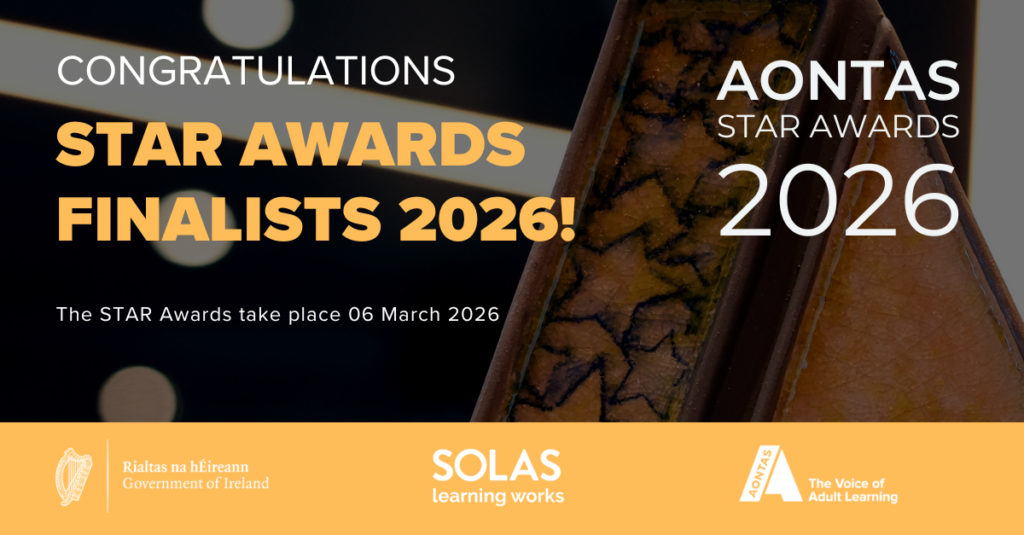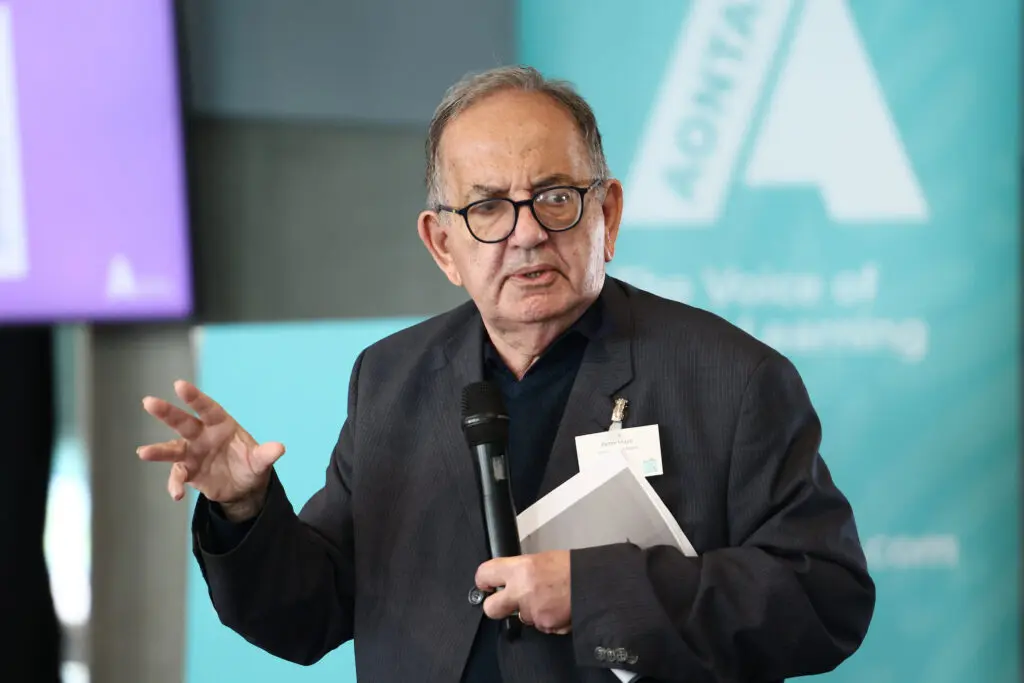Last week, the team at AONTAS brought adult learners from across the country together at an event to share education policy recommendations with Minister James Lawless, Minister of State Marian Harkin, and representatives from the Department of Further and Higher Education, Research, Innovation, and Science.
The event, which took place in Croke Park on Thursday 3 April, focused on the cost of education in Ireland, and what needs to change to make education more accessible and inclusive for all.
There were around 150 attendees, including students from higher education, further education and apprenticeships, their student union bodies and representative bodies, and adult and community education.
We were glad that the ETBs and Education and Training Boards Ireland (ETBI) helped us engage a diverse group of learners to speak at the event.
We had learners from across the country, including from ETBs in Tipperary, Cork, Waterford and Wexford, Kilkenny and Carlow, Laois and Offaly, Dublin and Dún Laoghaire, and City of Dublin.
There were also learners from the Dublin Adult Learning Centre (DALC), the National Learning Network, SETU, and the Liberties Weavers.
 A panel of students and learners spoke on the day. Some of the key issues were housing and how a lack of reliable public transport and the cost of fuel negatively impacts students and learners.
A panel of students and learners spoke on the day. Some of the key issues were housing and how a lack of reliable public transport and the cost of fuel negatively impacts students and learners.
While others spoke about third-level education, the adult learners who were engaged by AONTAS made essential contributions to the conversations around funding and supports for FET and the adult and community education sector.
Much of the focus was on the cost of education itself, and how the eligibility criteria for accessing funding are prohibitive for many learners.
Learners specifically spoke about the need for wraparound supports including childcare and mental health; resources for people with disabilities; the need for apprenticeship opportunities for more vulnerable and marginalised groups; and the impact of rising costs on students’ and learners’ experience of education.
They also advocated for reliable and affordable public transport, assistive technology for people with disabilities, and more cultural sensitivity for people from minority groups like Travellers and especially young Traveller women.

One of the learners, Ailish Dunne, who was one of our campaign spokespeople for last year’s Holding You Back campaign, highlighted how the cost of education for someone with a disability from a rural area, including transport and meals, can be beyond reach.
Ailish stated that additional allowances can be deducted from a primary disability payment, making the actual support available for learners with disabilities insufficient for engagement in education.
Learners also talked about the lack of clarity around what supports are available, as well as the bureaucracy, red tape, and stigma attached to engaging with the Department of Social Protection.
One learner, David Rigney, suggested that there should be a one-stop-shop for all supports so that there is clarity and guidance for all learners wishing to engage in education. This was a key ask in our Manifesto.
Another important aspect of the discussion was funding thresholds for access to supports. Learners suggested that this be based on ratios, so that the level of support depends on income.
Learners talked about having to work long hours while engaging in education, in order to pay rent and cover costs. They also mentioned the concerning rise in learners’ use of foodbanks.
Minister Lawless reflected on these issues, and expressed the need for the Department to be intentional with any measures they undertake, so that those most in need of support can benefit.
Speaking about the event, Minister Lawless said: “Engaging directly with students and stakeholders is essential to understanding the real challenges they face. This event provides a platform to ensure their voices are heard and their priorities discussed.
“The government is committed to making education more affordable. There have been significant changes in recent years to bring down the cost of further and higher education. This has included increasing student maintenance grants by an average of 47% over the term of the last government and increasing the number of SUSI recipients by almost 10%. I want to build on this over the coming years.
“My goal for this consultation event will be to identify how to ease financial pressures for all students across all sectors. My department is focused on ensuring that education is accessible to all. I am hopeful that the discussion will generate constructive, practical proposals for consideration as we examine the options to support students during the budgetary process.”
Our Head of Advocacy Conor Thompson met with Minister Lawless on the day and discussed these issues with him directly.
Our CEO Dearbháil Lawless took part in the discussions on the day and is now following up with Ministers Lawless and Harkin to continue to advocate specifically for the FET and adult and community education sector.
There will be an options paper forthcoming from the Department, setting out potential measures to further reduce the cost of education, as part of the Funding the Future policy.
Writing by Dr Kate Smyth, Strategic Comms Officer





